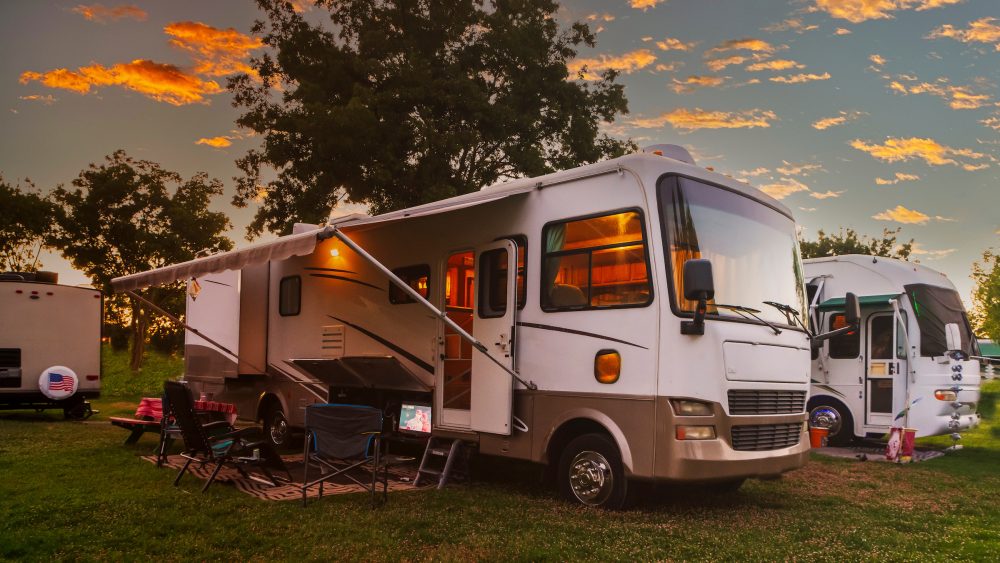At Party Barn Boat and RV Storage, we know your RV is your ticket to adventure. Whether you’re cruising down the highway to a national park or relaxing by a serene lake, your RV is your home away from home. But what happens when it’s time to pack it in for storage? One of the biggest concerns for RV owners is battery life during this downtime. A dead battery can put a damper on your next trip, leaving you stranded before the fun even begins. Today, we’ll explore the best practices for RV storage and battery life, ensuring your RV is ready when you are.
Understanding RV Battery Drain
Unlike your car battery, which constantly receives a charge from the alternator while driving, your RV battery experiences periods of discharge during storage. Several factors contribute to this drain:
Parasitic Loads: Even when your RV is off, there are small electrical draws from appliances like propane detectors, clocks, and memory modules. These “parasitic loads” can slowly deplete your battery over time.
Temperature Extremes: Extreme heat or cold can accelerate battery discharge. Hot climates can cause internal water evaporation, reducing battery capacity. Conversely, freezing temperatures can damage the battery plates, leading to permanent performance loss.
Strategies for Optimal Battery Life During Storage
Here are some key strategies to maximize your RV battery life during storage:
Fully Charge the Battery: Before storage, ensure your battery has a full charge. A fully charged battery is better equipped to handle both storage and temperature fluctuations. You can use your RV’s converter/charger or a dedicated battery charger to achieve this.
Disconnect the Battery: Minimize parasitic loads by disconnecting the battery’s negative terminal. This simple step can significantly slow down the discharge rate.
Battery Shut-Off Switch: Consider installing a battery shut-off switch. This allows you to quickly disconnect the battery without needing to access the terminals each time.
Storage Location: If possible, choose a storage facility with a climate-controlled environment. This will help maintain a stable temperature, reducing the impact on your battery.
Periodic Charging (Long-Term Storage): For extended storage periods (over 3 months), consider periodic charging. You can either connect your RV to shore power at the storage facility (if available) or use a battery maintainer/trickle charger. These devices provide a small, continuous charge to keep the battery topped off without the risk of overcharging.
Here at Party Barn Boat and RV Storage, we understand the importance of worry-free RV storage. We offer a variety of storage options, including some with access to shore power, to best suit your needs.
Additional Tips for RV Battery Maintenance
Battery Age: Most RV batteries have a lifespan of 3-5 years. If your battery is nearing the end of its life, consider replacing it before storage to avoid problems down the road.
Battery Cleaning: Clean the battery terminals periodically to remove corrosion, which can hinder proper electrical connection. A baking soda and water solution is a simple and effective cleaning agent.
Battery Watering (Flooded Lead-Acid Batteries Only): If you have a flooded lead-acid battery (one with removable caps), check the electrolyte level every few months during storage. Distilled water can be added to maintain proper levels, ensuring optimal battery performance.
By following these tips, you can ensure your RV battery stays healthy during storage and your next adventure starts without a hitch. Contact Party Barn Boat and RV Storage today to discuss our storage options and find the perfect fit for your RV!

